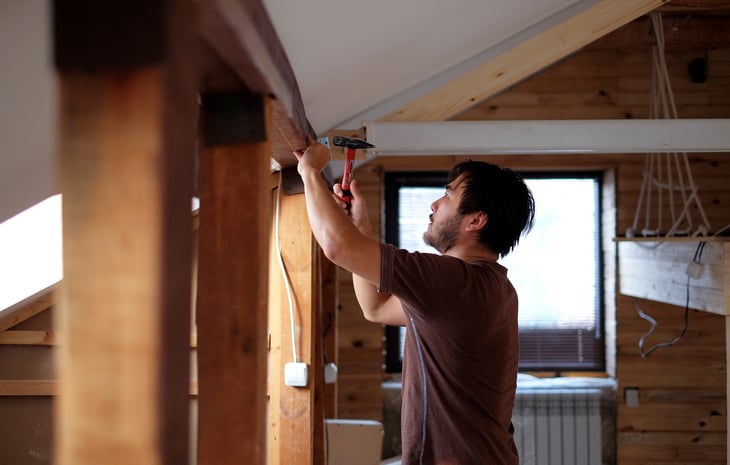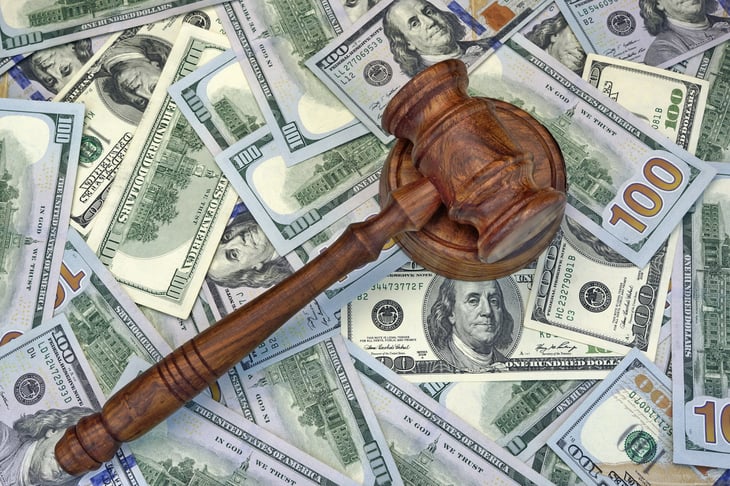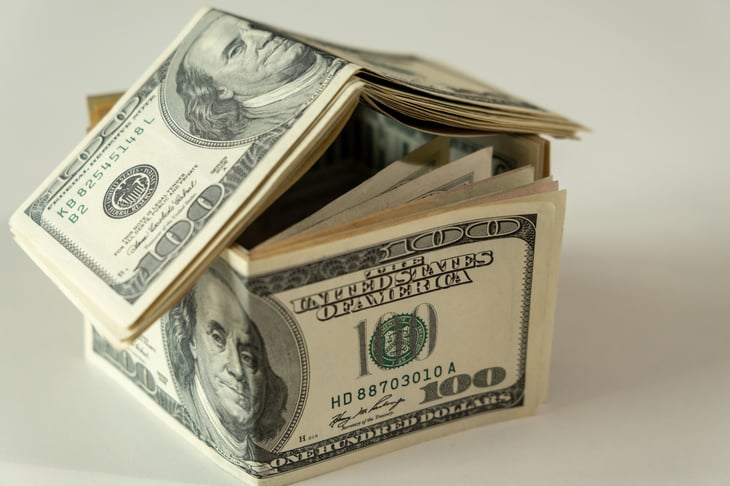
Editor's Note: This story originally appeared on Point2.
When it comes to selling your home, it’s important to remember that it will cost you to do so.
And if you’re planning to buy another property with the proceeds, it will help determine how much the cost of selling a house will eat into your budget.
Doing so will enable you to set a realistic goal and budget for your next home. So, with that in mind, let’s look at the various fees you can expect when selling a home.
1. Home Inspection

No law states you must have your home inspected before you sell it, but doing so can prove very useful.
Known as a pre-listing inspection, it can forewarn you of any potential issues and repairs that must be taken care of before you put your home on the market.
Since most buyers are required to carry out a home inspection, this gives you a head start, and once you’ve resolved any issues, the selling process can be much smoother and quicker.
On the other hand, if the inspection reveals a more significant problem, you can price accordingly or pay to have it fixed in advance.
Some real estate agents offer this service, but otherwise, you can typically expect to pay between $300 and $800 for a pre-listing home inspection.
In some areas, you may also be required to take out a survey before selling your home. The aim is to check that the property boundaries match the local records.
2. Renovations and Home Preparation

First impressions count for a lot in real estate, so getting your home looking its best is important. At the very least, you’d be advised to carry out a deep clean.
A coat of paint is also a good idea and can freshen things up while providing a neutral palette for buyers to put their own mark on.
If your home needs more repairs, such as fixing or replacing leaky faucets, you’ll need to budget a little more.
Curb appeal is also worth thinking about, and hiring a landscaping or gardening company can do wonders for your outdoor space.
If you’re handy with DIY, you can save a few costs when it comes to renovations. However, you’ll still need to account for materials, time and equipment.
3. Staging

Staging can help you present your home at its best, showcasing the highlights and transforming potential issues, like a small bedroom, into features.
Staging companies will generally offer various options at different price points.
Again, some real estate agents will offer this service, but if you’re planning to work with a professional staging company, consultancy fees generally start at around $200.
And, if you’re renting furniture and decor for a vacant home, it can cost upward of $2,500 a month.
4. Listing, Advertising and Marketing Fees

If you’re selling your home without an agent, you’ll first need to think about where you’ll list your home, how you’ll advertise it, and finally, how much it will all cost.
Multiple listing services (MLS) will offer many options at different price points depending on your needs, and it’s usually not too difficult to upload your listing.
Of course, a homemade sign in your yard will cut your marketing costs considerably but also reduce your reach.
Closing Costs After Selling Your Home

Finding a buyer for your home is great, but there are still a few closing costs to be aware of before you crack out the champagne.
Knowing these in advance can be extremely helpful, as you may be able to roll some of them into the listing price, especially in a seller’s market.
1. Real Estate Agent Commissions

You can sell your home on your own, but it’s a lot of effort, and a lot can go wrong. Having a real estate agent on your side saves you a lot of work when it comes to:
- Listing your home
- Marketing it
- Organizing visits
- Negotiating with buyers
- Coordinating the myriad of other tasks involved in selling a home
However, agent fees are likely among your most significant costs when selling your home. Generally, you can expect to pay around 3% to 7% of the sale price. The figure isn’t set in stone, though, and you can often bargain. If the buyer also has an agent, you’ll often be expected to cover their fee, too, typically around 3%.
While this seems high, it does save you from other fees you’d have to pay if you were selling your home yourself. These include things that the agent will usually take care of, like:
- Appraisal fee
- Legal fees
- Listing fees
- Marketing costs
Typically, this cost is simply deducted from the money you make from the sale. However, if you have low equity in your home, you may need to foot the bill using your savings.
2. Mortgage Penalties

Many sellers still have an outstanding mortgage amount when they sell their home.
If this is you, it’s essential to remember that many lenders will charge a prepayment penalty for terminating your loan early. This is typically a percentage of the remaining balance and can cost thousands.
Be sure to speak with your lender in advance to see what the penalty is and if there is any way to soften the blow.
For example, if you’re taking out a mortgage on your new home, you may be able to transfer the remaining balance of your original loan and dodge the penalty.
Some lenders also charge a mortgage discharge fee, generally around $200 or $300.
3. Recording Fees and Transfer Taxes

Any property sale needs to be recorded before it can be fully completed. Your real estate agent will typically take care of registering the deed with the local county recorder’s office, though you can do it yourself.
Either way, it’ll usually cost you anywhere between $65 and $150 to do so, depending on your location.
The property title must also be transferred before the sale can be completed.
This is subject to transfer tax, which also differs in cost depending on your location and is generally assessed based on the value of your home.
4. Outstanding Bills and Taxes

Before you move out, you’ll need to settle any outstanding payments.
From utilities to HOA fees and property taxes, these will all need to be paid off to the point at which the ownership of the property changes.
Hidden Costs of Selling a House

Finally, there are a few small and often forgotten costs of selling a house. These can soon mount up, so it’s best to be aware of them and budget accordingly:
- Income property tax: This only applies to investment properties, so don’t worry if you’re selling your primary residence. However, for income properties, be prepared to pay capital gains tax at your marginal income tax rate.
- Strata documents (Canada only): If you’re selling a condo or townhouse in Canada, you’ll need to obtain the strata documents early on to speed up the sales process. Order them through the property management company, with average costs between $30 and $250.
- Moving and storage costs: Finally, budget for moving out of the home you’re selling. If you need to rent storage space, factor that cost in on top of the price of renting a van or hiring a professional moving service.





Add a Comment
Our Policy: We welcome relevant and respectful comments in order to foster healthy and informative discussions. All other comments may be removed. Comments with links are automatically held for moderation.